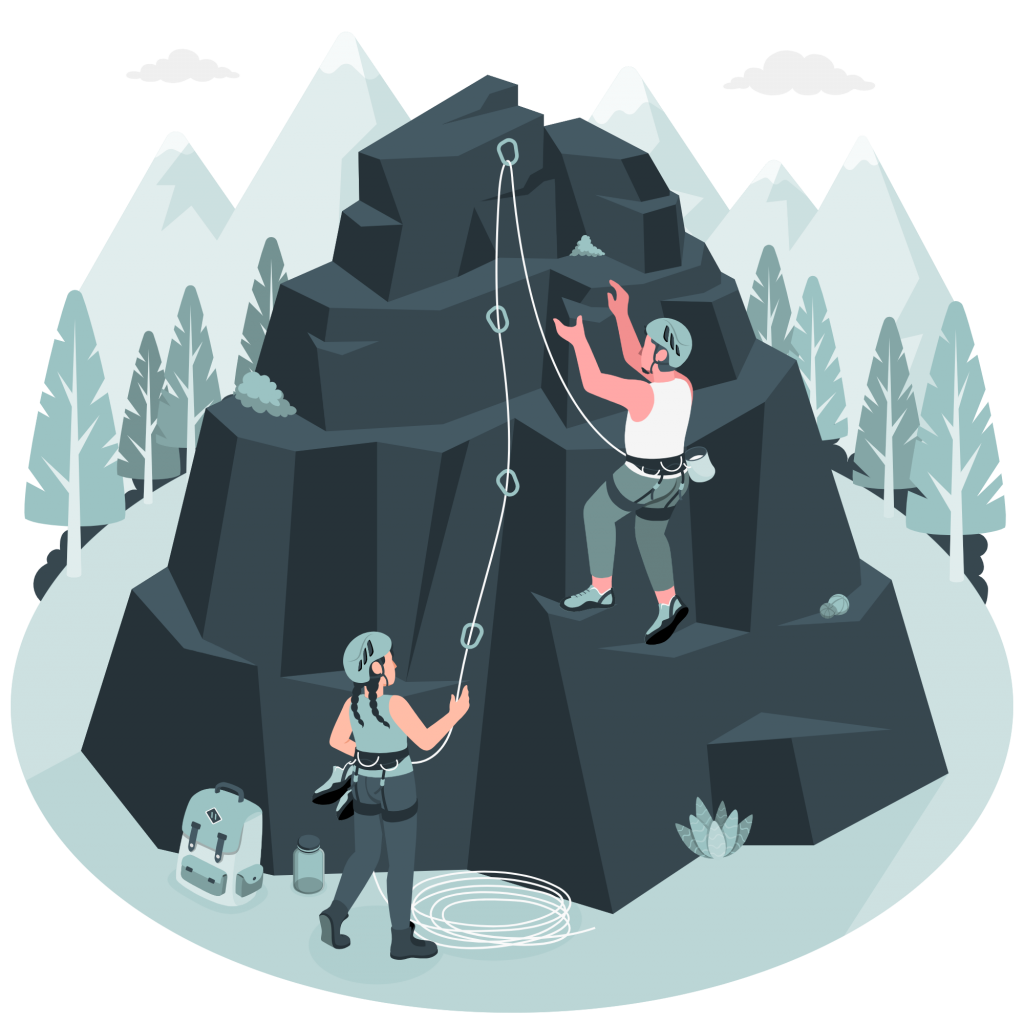Amid the daily bustle of office life, even well-intentioned team lunches and structured bonding activities can lack the depth needed to break down barriers and foster genuine connections. Company retreats offer a rare opportunity for employees to step away from their usual routines and engage with each other on a deeper, more meaningful level.
With many organizations returning to the office, company retreats are a powerful way to rebuild and reinforce organizational culture. For remote teams, annual retreats can offer a much-needed chance for colleagues to connect face-to-face. From an adventurous camping trip or a serene wellness weekend to an indulgent tasting tour, work retreat activities strengthen bonds that support effective collaboration throughout the year.
What Is A Company Retreat?

Company retreats are extended, immersive experiences that foster deeper connections, personal growth, and team cohesion. Unlike quick team-building activities or outings, company retreat activities typically span at least a full day (if not multiple days) and take place outside the workplace. The extended timeframe and change in scenery allow employees to engage in one or more activities that are difficult to execute on a regular workday, such as outdoor adventures or extended wellness workshops.
15 Company Retreat Ideas
1. Yoga And Wellness Retreat
A yoga and wellness retreat offers employees a mental and physical reset from the stresses and demands of their work routines. This retreat can be held at a tranquil location, like a lakeside cabin or mountain lodge, where team members participate in daily yoga sessions, meditation practices, and wellness workshops focused on stress-management and mindfulness techniques. By prioritizing mental health and self-care, employees return to work feeling more rejuvenated and centered.

2. Camping Trip
A camping trip is ideal for teams looking to unplug and enjoy the simplicity of the outdoors. Many activities naturally encourage teamwork, like setting up tents and gathering firewood. Others, like hiking, fishing, and stargazing, allow employees to get to know each other on a personal level by providing opportunities for informal, relaxed interactions outside of the usual work environment. The shared experience of living outdoors (and the occasional debate over the best way to roast a marshmallow) strengthens bonds and creates shared memories within the team.
3. Ski Trip
A corporate ski trip is an exhilarating retreat option for a bit of adventure and a lot of fun. Regardless of skill level, the slopes are an exciting and challenging environment where employees can support and encourage one another. Provide alternative employee retreat activities like snowshoeing, a scenic gondola ride, or a spa day for those who prefer different activities. Unwind at the end of the day with a team dinner and board games by the fire.
4. Eco-Volunteering Trip

Organize an eco-volunteering trip with projects like tree planting, beach cleanups, or wildlife conservation. This retreat is particularly well-suited for organizations focused on sustainability or teams with a desire to give back. It allows employees to connect with nature, contribute to a meaningful cause, and cultivate a sense of purpose. The collective effort to make a positive impact will instill a sense of fulfillment and lasting team pride.
5. Beach Getaway
Whether it’s a local beach day or a week-long tropical retreat, some sun, sand, and salt offer the perfect backdrop for team bonding and relaxation. Employees can get to know each other in a laid-back setting, take a dip in the ocean, or play a friendly game of beach volleyball. If budget allows, consider organizing other work retreat activities like a group snorkeling trip, paddleboarding session, or surfboard rentals. A barbeque or bonfire is a relaxing way to end the day!
6. Outdoor Survival Skills Training
For a more rugged retreat, outdoor survival training offers a challenging, but exciting, experience. Participants learn skills like fire-building, shelter construction, and navigation, pushing them to work together in unexpected ways. While these skills may not come in handy back at the office, they build resilience and trust within the team.
7. Leadership And Personal Development Retreat

A retreat focused on leadership and personal development promotes individual and collective growth. Through workshops, seminars, and interactive sessions, employees at all levels of the organization develop problem-solving, communication, and emotional intelligence skills. They’ll leave with a deeper understanding of their strengths and areas for improvement, providing a roadmap for continued development and more effective teamwork. Back in the office, employees can apply their newly acquired skills and fresh perspectives to foster collaboration, enhance motivation, and improve performance.
8. Community Service Project
A service project, such as building homes with a local housing organization or volunteering at a food bank, is a powerful way to make a tangible difference in the community. Dedicating time and effort to help those in need unites employees around a commitment to social responsibility. Allow employees to choose the cause they are passionate about, whether it’s environmental conservation, animal welfare, or supporting underserved communities. By giving them the freedom to select their preferred cause, you enhance their engagement and commitment.
9. City Scavenger Hunt
Whether organizing a day trip to a nearby city or kicking off a week-long retreat in a new location, a scavenger hunt is an interactive way for the team to discover hidden gems and learn about local culture. Split the team into small groups to solve puzzles, find landmarks, and complete creative challenges scattered throughout the area. This activity promotes teamwork and problem-solving while promoting adventure and exploration.
10. Team Sports Tournament

A soccer, volleyball, or basketball tournament will get sports lovers excited and allow them to teach their colleagues how to play. This can be organized as a daily game during an extended retreat or a full-day tournament for a more intense experience. For those who may not want to compete, consider including light-hearted employee retreat activities like frisbee or lawn games to keep everyone involved. After the main events, celebrate everyone’s efforts with a casual awards ceremony.
11. Amusement Park
With rides, games, and snacks available, an amusement park is sure to bring out everyone’s inner child. Encourage employees to form small groups based on their preferences—adrenaline-seekers can share screams on rollercoasters and arcade game lovers can compete to win traditional carnival prizes. This allows colleagues from different teams to bond over shared interests and provides a refreshing break from work-related stress, helping employees unwind and recharge.
12. Adventure Park
Adventure parks differ from amusement parks by offering physically engaging, challenge-oriented activities in natural settings. Spend the day tackling obstacle courses, rock climbing, zip-lining, or navigating rope bridges. These company retreat activities push team members to step out of their comfort zones and rely on each other for support. After a day of overcoming challenges and sharing triumphs, the team will feel a sense of accomplishment, connection, and trust with their colleagues.

13. Boating Adventure
Organize a day cruise along the coast, an afternoon sailing lesson, or an overnight trip on a larger vessel. The team can learn the ropes—literally—by working together to navigate and manage the boat, or simply enjoy the peaceful surroundings. Fishing, snorkeling, or a beach stop can add variety to the excursion.
14. Culinary Experience
A day of culinary experiences unites employees through the shared joy of cooking and dining. This retreat can feature several food-focused activities, from embarking on a food truck tour to mastering the art of pasta making in a cooking class. End the day with a mystery dinner, where team members receive only the time and location and enjoy a surprise meal with colleagues they might not usually interact with. These culinary experiences can be integrated into a larger retreat itinerary or stand alone as a full day dedicated to delighting the foodies in your organization.
15. Beverage-Tasting Tour

When thoughtfully planned, a beverage-tasting tour can cater to everyone’s tastes, whether team members favor wine, craft beer, or non-alcoholic options. A wine-tasting weekend might feature visits to several vineyards, while a brewery-hopping day can offer education and enjoyment for those interested in the brewing process. To ensure non-alcoholic options are provided for those who choose not to drink, include stops at specialty tea houses, coffee roasteries, or juice bars. Pair beverage tastings with a generous spread of charcuterie and snacks to highlight the food as much as the beverages.
Considerations
The difference between a good retreat and a great one lies in the details—how you plan, involve your team, and capture memories. Here are a few key considerations to keep in mind:
- Build excitement: Share the retreat itinerary in advance and encourage employees to contribute ideas, helping build anticipation.
- Invite collaboration: Involve team members in the planning process and gather feedback after the event to continually improve future retreats.
- Balance interactions: Schedule time for both team-specific activities and cross-team interactions to foster relationships across the organization.
- Capture the moment: Take photos and videos during the retreat to create lasting memories and share the experience with those who couldn’t attend.
Conclusion

Company retreats catalyze deeper connections that fuel cohesion and enhance motivation by providing opportunities for employees to engage in meaningful interactions outside the usual work environment. To maximize these benefits, consider incorporating team-building activities into retreat itineraries and continuing them throughout the year. These initiatives enhance the experience and help maintain strong team dynamics over time. For a wealth of ideas, check out a comprehensive list of 100 team-building activities.












